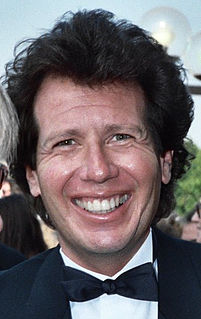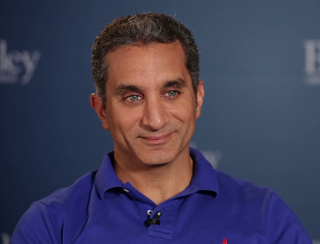A Quote by Mark Billingham
It may sound surprising, but a joke and a crime novel work in very much the same way. The comedian/writer leads their audience along the garden path. The audience know what's coming, or at least they think they do until they get hit from a direction they were not expecting.
Related Quotes
Put in every joke that's not a dud and then let's just start pulling the ones that work the least. You're just constantly sifting until you're left with the biggest chunks of gold. The audience also tells you what some of those chunks are. You can have your own favorites, and then, once you screen it for an audience, the audience tells you what they're entertained by. I feel like that's a big part of it.
With a live audience, it's very clear when you've pushed it too far to the edge - because you fall off that edge and hit bottom with a thud. Nothing abstract about that. You know you went too far when you hear that groan or worse - that silence instead of the big laugh you were expecting following your hilariously edgy joke.
I've told Michael Jackson jokes. If you got really technical, you could say those are jokes about child molestation. You could, if you got technical. A lot of this is just selective outrage because honestly, the audience are the ones that tell us that something shouldn't be spoken. The audience lets us know. And I've never, in my almost 30 years of being a comedian, seen a comedian continue to tell a joke that the audience doesn't respond to. I've never seen it.
I get very confused about being called a comedian, because when you say 'I'm a comedian,' people expect you to crack a joke. Maybe I use laughter and humour to make people think. I don't know what you call that - a humourist? A satirist? A pessimistic comedian? I don't know. Satirists can be very dark.
The only way to resonate at a level that persuades is to know who you are addressing. If it's true that the Audience is the hero, you need to spend time thinking about them. Really getting to know them to the point it feels like they are a friend. May times we picture our audience as a large clump of strangers. Instead, you need to picture them as individuals standing in line to have a personal conversation with you. It's easy to persuade a friend, you need to think about your audience until you know them as a friend.
You can't expect everyone to laugh or applaud you for doing edgy things. Sometimes you'll miss. But I think comedians are artists and there's a value in failure. It kind of works both ways between comedians and audiences. The audience has to understand that comedians are going to sometimes tell a joke that doesn't work out with dark subjects, and the comedian has to understand that sometimes they 'll fail and it's not the audience's fault for not getting it or loving it.
I don't think about the audience, I don't think about what makes them happy, because there's no way for me to know. To try to think of what makes for entertainment is a very Japanese thing. The people who think like this are old-fashioned. They think of the audience as a mass, but in fact every person in the audience is different. So entertainment for everyone doesn't exist
Think of the sound you make when you let go after holding your breath for a very, very long time. Think of the gladdest sound you know: the sound of dawn on the first day of spring break, the sound of a bottle of Coke opening, the sound of a crowd cheering in your ears because you're coming down to the last part of a race--and you're ahead. Think of the sound of water over stones in a cold stream, and the sound of wind through green trees on a late May afternoon in Central Park. Think of the sound of a bus coming into the station carrying someone you love. Then put all those together.
I think one of my favorite pieces I've ever done on the show which was about Hezbollah Israel conflict in 2006 and it was very pointed. It was a beautifully crafted piece of satire and it's a weird thing to say but it had a joke in there about 9/11 and I remember the audience sort of laughing but also kind of not knowing how to respond to that joke and it was just so - and I remember the tension after we did this joke on the air and there was this palpable gasp in the audience, but they were also laughing. And I thought oh, wow, that is something that is not being said in the Zeitgeist.





































